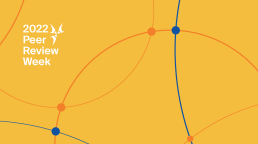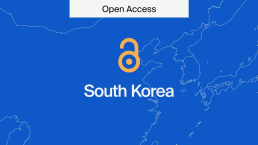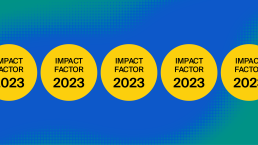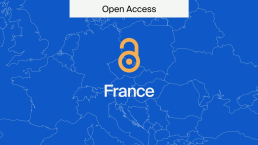
Your Guide to Peer Review Week
In this guide for Peer Review Week, we want to give our readers a bit of information about the event. Many buzzwords get thrown around in academia. From Article Processing Charge to submission status, it can be hard to keep up!
One phrase that you may have heard recently is ‘Peer Review Week’. It’s been discussed frequently in academic circles over the past few weeks, in anticipation of it being celebrated from the 19th to the 23rd of September, 2022.
So, what happens during Peer Review Week, and what does it mean for researchers?
This guide will take you through everything you need to know. We’ll take a look at the following:
- The origins of Peer Review Week
- What is Peer Review Week?
- This year’s theme
- How MDPI celebrates Peer Review Week
Our guide on the origins of Peer Review Week
Peer Review Week now has its feet planted firmly in the world of research. However, the celebration is surprisingly young.
It was established in 2015 as an exceptional joint venture. The organisations ORCID, Wiley, ScienceOpen, and Sense About Science decided to raise awareness of peer review by coming together to set up the observance.
The first-ever Peer Review Week took place between the 28th September and the 2nd of October, 2015. With no specific theme, this breakout event was general in tone, boosted by the academic community on Twitter.
The collaboration began to evolve over the years. After only a few years, a small team of academics formed to make up the Peer Review Week organisation.
The team, still collaborating with the founders, raises awareness of issues surrounding peer review, an important part of the research paper publication process. Through this guide and our other content, we also hope to do our part to contribute to awareness on the issue.
What is Peer Review and why is it important?
This guide hopes to show that peer review is extremely important to research across the board. MDPI’s processes are no different!
When an academic wants to publish their research in one of MDPI’s journals, they’ll typically approach a journal corresponding to their field. The journal will work with the academic to bring their manuscript from a submitted piece to a finished article. One of the steps of this journey is peer review.
Peer review involves academic colleagues providing feedback on each other’s work.
The editorial staff at the journal reaches out to several researchers considered experts in the paper’s field. Once they agree to review, they receive the manuscript and can then provide comments on its scientific rigour.
Peer review is extremely beneficial to the publication process. Thanks to the expertise of the peer reviewers in their fields, the editorial team can learn about the quality of the paper. They can therefore decide which manuscripts should be published. By assessing the papers in this way, we can also assure long-term research integrity, one of MDPI’s central goals.
So many of our contributors have been not only authors, but also peer reviewers as well.
We carefully consider identity in peer review when we choose reviewers. We make sure that peer reviewers are experts in their fields, as we want to maintain trust in peer review. Authors and the academic community at large have a vested interest in high-quality research. It’s as important to us as much as it is to them.
A guide to Peer Review Week
Peer review week is a celebration of the peer review process and its importance in academia. It’s an independent, community-led effort. It’s no exaggeration that, without peer review, academia would lose a vital part of its function. It goes without saying that integrity would also be compromised.
Trust in peer review is important. Authors and readers alike should feel confident about the peer review process and hence the quality of research.
It’s about ensuring quality across the board. In 2021, 4,172,474 reviews were completed across 7344 journals. Every publisher has a part to play in ensuring a solid and fair peer review process.
Peer Review Week theme
Every year has a different theme. Having a theme ensures that the most important issues are covered. It also provides a focal point for the week. For us, this guide aims to raise awareness on this year’s theme.
In 2021, identity in peer review took centre stage. This is tied to themes of diversity and inclusion. When we invite academics to review, we need to be open-minded and considerate of their background, being flexible when it comes to issues related to sex, gender, age, religion, race, and more.
Meanwhile, in 2022, the theme is research integrity.
Research Integrity
This year’s theme is strongly tied to the principle of research.
Research is used as a trusted source, in academia itself, across news outlets, and on the Internet.
To find out more about this, feel free to also take a look at our article on this year’s theme.
How Does MDPI Celebrate?
So, now that this guide has answered the question ‘what is peer review week?’, it’s time to go over the upcoming celebrations.
Peer review is a central part of our operations. It helps us keep in line with our goal of maintaining trust: trust in peer review, trust in publication, and trust in research.
Every year, we organise events related to peer review.
In 2021, we celebrated by interviewing various members of staff for a video on the topic of successful peer review. This year, we also have a huge selection of content related to Peer Review Week (including other guides!).
We’ll be posting frequent updates on the MDPI Blog, as well as providing guidance for those writing reports, and detailing what it means to us.










